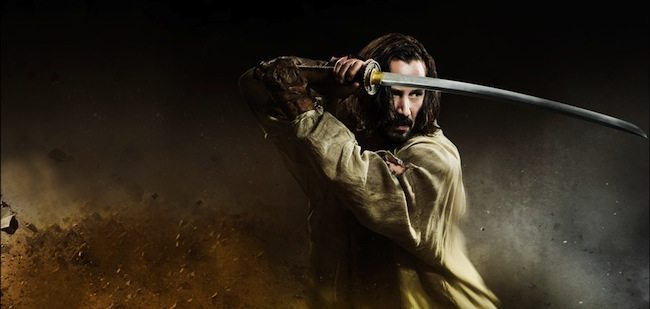Cowboys and Samurais draw Box-Office Bombs
According to Box-office statistics, 2013 was a pretty stellar year for the film industry with theatres tallying a record-breaking $10.8 billion in revenues. If 2014 were to repeat those numbers, it’s unlikely many executives would be crying into their coffee. Yet despite the impressive overall grosses, the year vomited forward several ginormous flops, films with triple-figured budgets, unable to recoup basic production costs, much less turn a profit. The most noted example was Disney’s The Lone Ranger; star Johnny Depp blaming its failure on critics, as opposed to the hedonistic $225 million price tag and scrappy screenplay. However, that’s only one of 2013’s colossal under-performers with the financially bloated 47 Ronin posting similarly dire returns. Why are these films failing? Is the market overly saturated? Is the buzz too sour? Or are they simply not good enough to get bums in seats?
When it comes to promotion and standing in the trades, both of the aforementioned pictures carried toxic reputations long before they opened. The Lone Ranger entered pre-production in 2011 but was temporarily cancelled in August of that year, with Disney uncertain about the escalating costs. Eventually the production was reignited, but the budget remained at a dizzying $225 million. Things weren’t helped by the death of a crew member during principal photography – sullying its reputation prior to word breaking that the final cut wasn’t up to snuff. 47 Ronin endured an even patchier road to multiplexes. The Samurai epic began shooting in 2011, but the budget quickly ran amok (final estimates put it at $175 million) and debut director Carl Rinsch speedily fell out of favour with his higher-ups. Rinsch’s vision adhered to a more traditional oriental aesthetic and Universal growing antsy at his increasingly lavish expenditures resulted in eventually locking him out of the edit in 2012 following extensive reshoots to try and bolster the film’s Western appeal. Adding to its woes were release postponements (the film was originally set for Christmas 2012, it arrived a full-year and one further delay later) and the fact much of its marketing relied on Keanu Reeves, an actor whose marquee value has waned considerably since the 2003 heyday of his Matrix sequels. Both flops suffered hard journeys to the screen, but is that enough to ex- plain their lack of fiscal bounty?
Critics turned on both movies swiftly, The Lone Ranger accumulating a sorry 31% approval rating on critical aggregator Rotten Tomatoes, whilst 47 Ronin sunk even lower to 12%. The fact neither film is as terrible a those scores suggest seems irrelevant (The Long Ranger is deeply flawed but offers some rousing action and 47 Ronin was one of last year’s prettiest tent-poles), but to what degree does such a media battering account for failure? Not much, I reckon. If Rotten Tomatoes has any effect on the Box-office it’s incredibly hard to detect; hefty derision didn’t stop other 2013 features like A Good Day to Die Hard and Identify Thief accumulating healthy totals. Audience polling grades actually suggest that the contingent who bothered to see The Lone Ranger and 47 Ronin quite liked them (they both racked up solid B+ Cinema Scores), so the subjective quality of the movies isn’t the issue. Viewers were clearly ready to reject both Ronin and Ranger before journalists had a chance to damn them – but why?
Maybe audiences are tired of Johnny Depp, and letting Keanu Reeves open a feature in 2013 could kindly be described as brave. It’s very possible that the spotty production histories of both films played into their negative performance – after all, on-set deaths and multiple delays don’t often lead to masterpieces. Competition might’ve been too steep: 47 Ronin had to open mere days after juggernauts Frozen and The Hobbit: Desolation of Smaug. Or perhaps Depp was correct, and spiteful reviews are to blame for this flock of box-office turkeys. Whatever the reason for this clutch of blockbusting outcasts (I haven’t even touched on R.I.P.D or Pacific Rim in this article – although the latter did booming trade over-seas) it’s clear that simply throwing money at a production is no guarantor of success, and that building a positive standing in the year before release is crucial. None of this seems like rocket science, and yet the studios continue to fall foul of such trappings. Audiences clearly have a sixth sense, (or so they think), when it comes to sniffing out damaged goods, handily disposing of anything that limps rather than strides its way onto our screens. In future Hollywood might want to apply more thought in promoting and producing its seasonal MVPs instead of publicly trying to spend their problems away. It would appear post-recession viewers aren’t fans of executives dousing their rabid product with cash in the style of a capitalist antidote. Who knew?


Comments